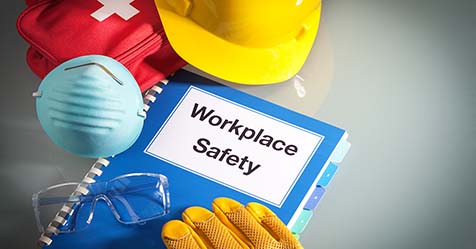U.S. Adults Don’t Know When or How to Wash Their Hands
A new report from the National Foundation for Infectious Diseases (NFID) found nearly half (48%) of U.S. adults admit to forgetting or choosing not to wash their hands at key times, such as after visiting grocery stores, restaurants or coffee shops, or a healthcare setting (doctor’s office, pharmacy, clinic, hospital, etc.).
The report offers unique insights into where, when, and why U.S. adults are most likely to wash their hands, and when they forget or choose not to do so. Following the worst flu season in 15 years and several norovirus outbreaks across the U.S., the NFID report reveals that while U.S. adults say they know how to wash their hands properly, their habits often suggest otherwise.
Key survey findings include:
- Six out of 10 (62%) survey respondents correctly answered that washing their hands with soap and water for 20 seconds effectively reduces the spread of germs.
- While forgetting is the most common reason reported for not washing hands, one in five (20%) actively choose not to wash their hands, citing reasons like it being unnecessary, a lack of time, or a concern about drying out their hands.
- Of those who did not wash their hands with soap and water, men are more likely to simply forget, while women are more likely to use alternatives like hand sanitizer.
- The top three situations that prompt U.S. adults to wash their hands are: after using the restroom (69%), after handling food (48%), and after handling human or animal waste (39%).
- Only 30% of respondents reported that they are most likely to wash their hands after coughing or sneezing, which is a concern, given how easily respiratory diseases such as flu can spread.
“Given the importance of handwashing in infectious disease prevention, the stakes are high—improving hand hygiene can help improve health for all,” said Dr. Robert H. Hopkins Jr., NFID medical director. “While handwashing is an important strategy for disease prevention, and should be complementary to vaccination, it is a critical and often overlooked tool.”
Estimates show that if everyone routinely washed their hands, about 1 million lives could be saved around the world each year.
According to the survey, 55% of U.S. adults wash their hands primarily to stay healthy and avoid getting sick. In addition, 68% of respondents said that avoiding spreading germs to others was among their top three reasons for handwashing, showing concern for protecting others in the community.
For some, handwashing is a seasonal behavior—one in four (26%) respondents reported washing their hands more frequently in the fall and winter, even though germs can spread throughout the year. The survey also found that one-third of respondents reported washing their hands more now than they did during the COVID-19 pandemic.


